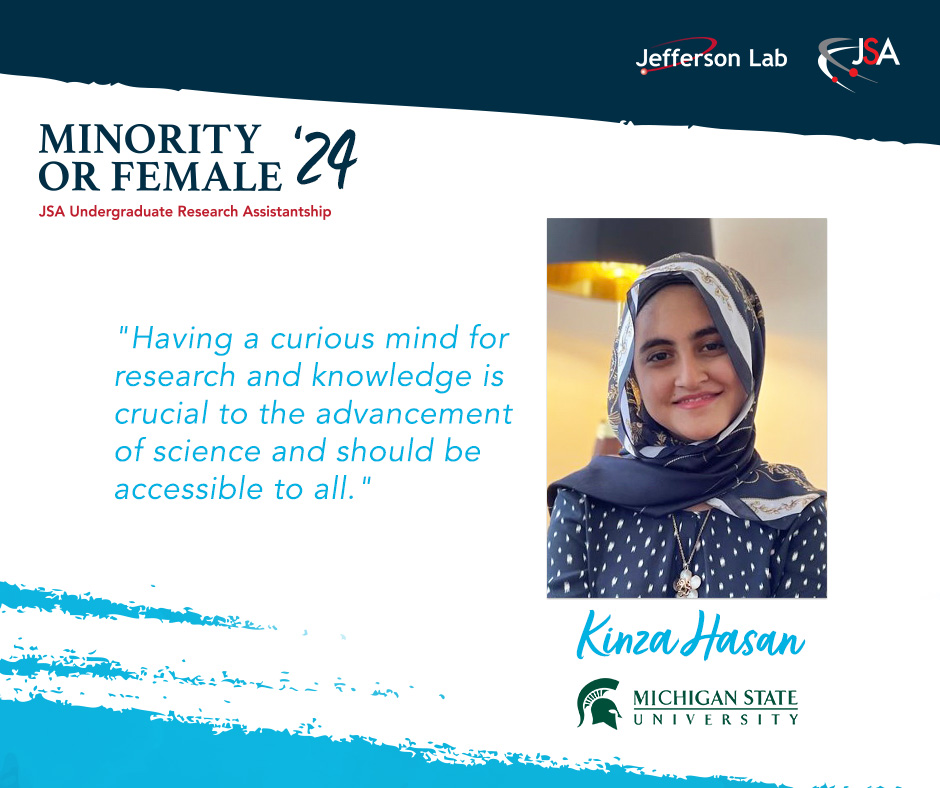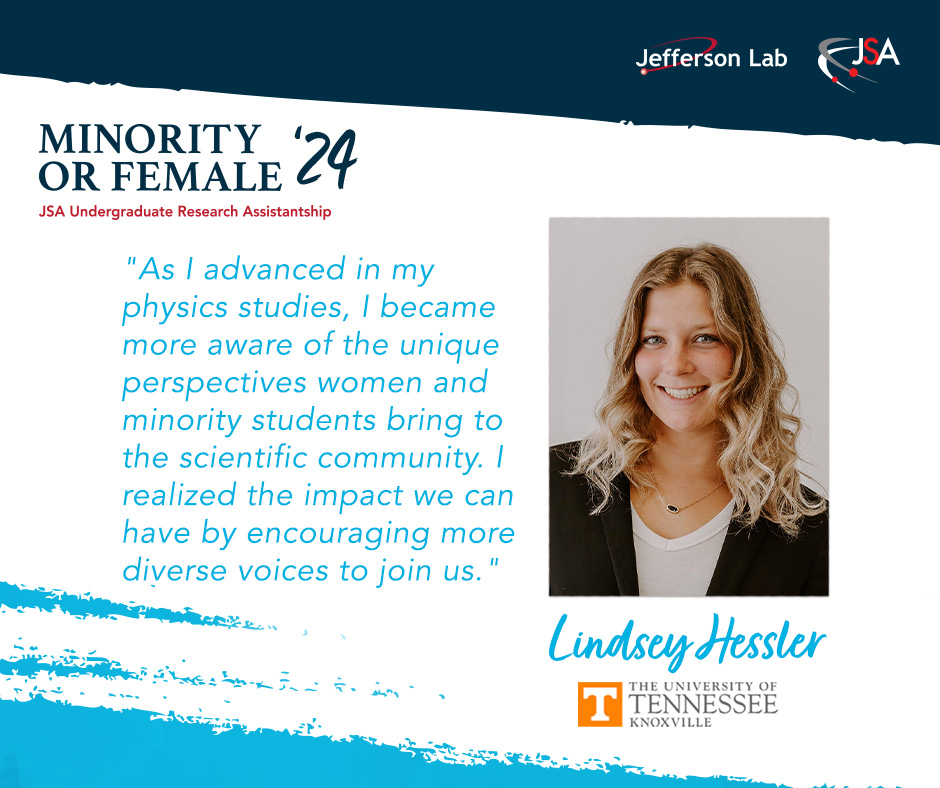JSA announces two undergraduate research assistantships recipients
NEWPORT NEWS, VA – Jefferson Science Associates (JSA) is pleased to announce the selection of two outstanding students for the 2024-2025 Minority/Female Undergraduate Research Assistantship (M/FURA) program. This prestigious program supports minority and/or female undergraduate students pursuing physics research directly related to the U.S. Department of Energy's Thomas Jefferson National Accelerator Facility scientific mission.
Meet the 2024-2025 MFURA recipients:
Kinza Hasan, Michigan State University
Advisor: Huey-Wen Lin
Recognized for her exceptional contributions to the field of Quantum Chromodynamics (QCD), Hasan, a junior physics major from Pakistan, has been an integral part of Lin's research group since her freshman year. She is also co-author of a paper on the parton distribution functions of hadrons.
"Through the M/FURA program, Hasan will be able to continue her work on lattice QCD, contributing to Jefferson Lab’s ongoing efforts to deepen our understanding of hadron structures," said Lin. "Her passion and talent have made her an invaluable asset to the research team."
Lindsey Hessler, University of Tennessee, Knoxville
Advisor: Nadia Fomin
As a senior with a double major in physics and business, Hessler has quickly distinguished herself within the medium energy physics research group. Her current research focuses on the analysis of recent data from Hall C at Jefferson Lab, with additional efforts in target research and development for upcoming experiments in Hall B.
Fomin shared that in her research group, Hessler has already demonstrated her ability to explore beyond suggested readings while not being afraid to ask questions or seek out additional guidance when necessary.
"Her commitment to her studies and research is evident in her proactive approach," Fomin said. "This includes her work on literature reviews and a programming project analyzing short-range correlations in nuclear matter."
Both students will receive a $7,400 stipend and, under the guidance of their university advisors, will engage in research throughout the year. The students will submit a project report upon completion of the assistantship.
M/FURA plays a crucial role in providing valuable research opportunities to minority and female students in the STEM fields. By supporting these underrepresented groups, the program not only fosters a more inclusive scientific community but also empowers the next generation of innovators to contribute their unique perspectives and talents to groundbreaking research.
The M/FURA award is supported by the JSA Initiatives Fund (IF) Program, a JSA commitment to support programs, initiatives and activities that further the scientific outreach and promote the science, education and technology of Jefferson Lab. The JSA IF also benefits the lab’s extended user community in ways that complement Jefferson Lab’s basic and applied research missions.
Contact Michelle Alvarez, Jefferson Lab Communications Office, malvarez@jlab.org



